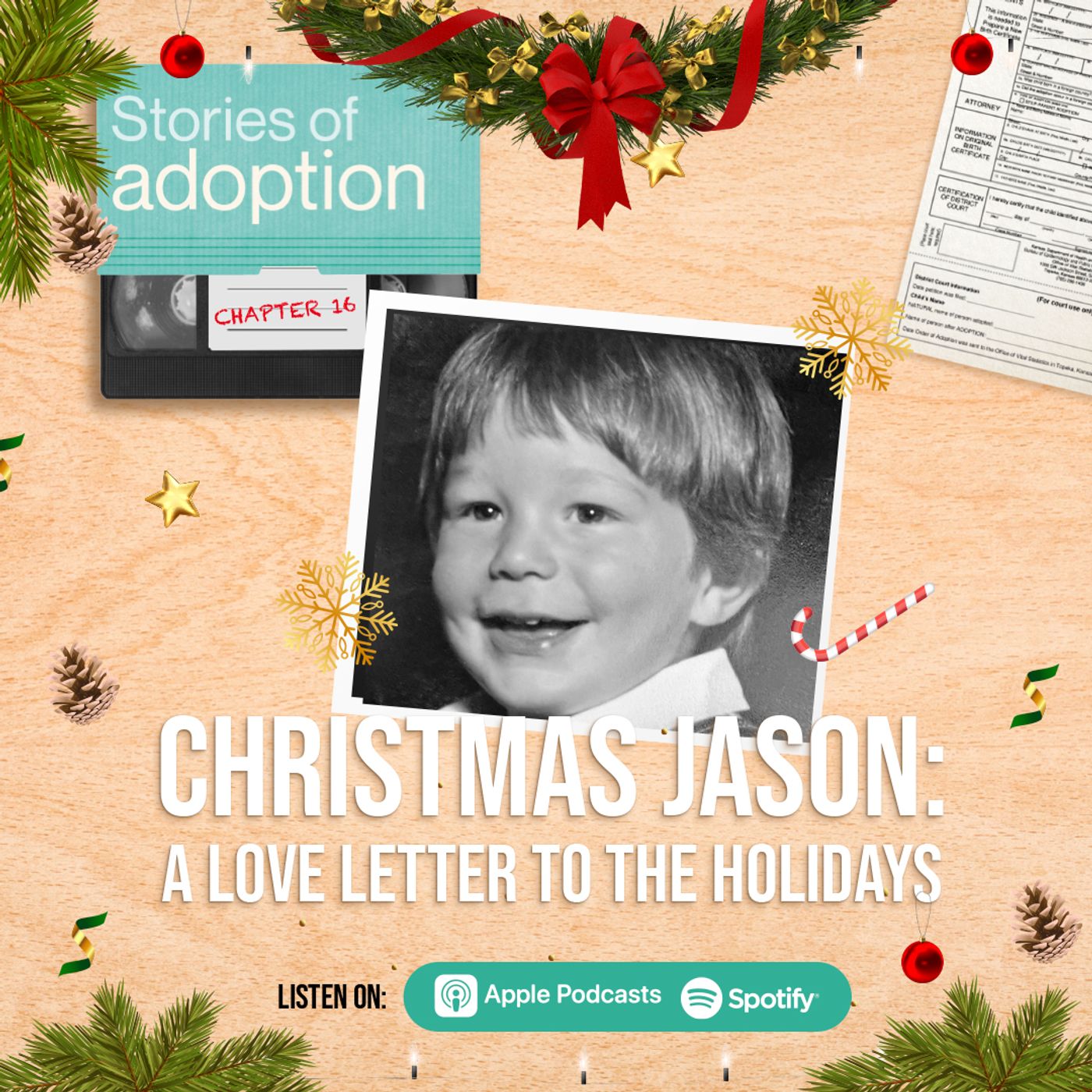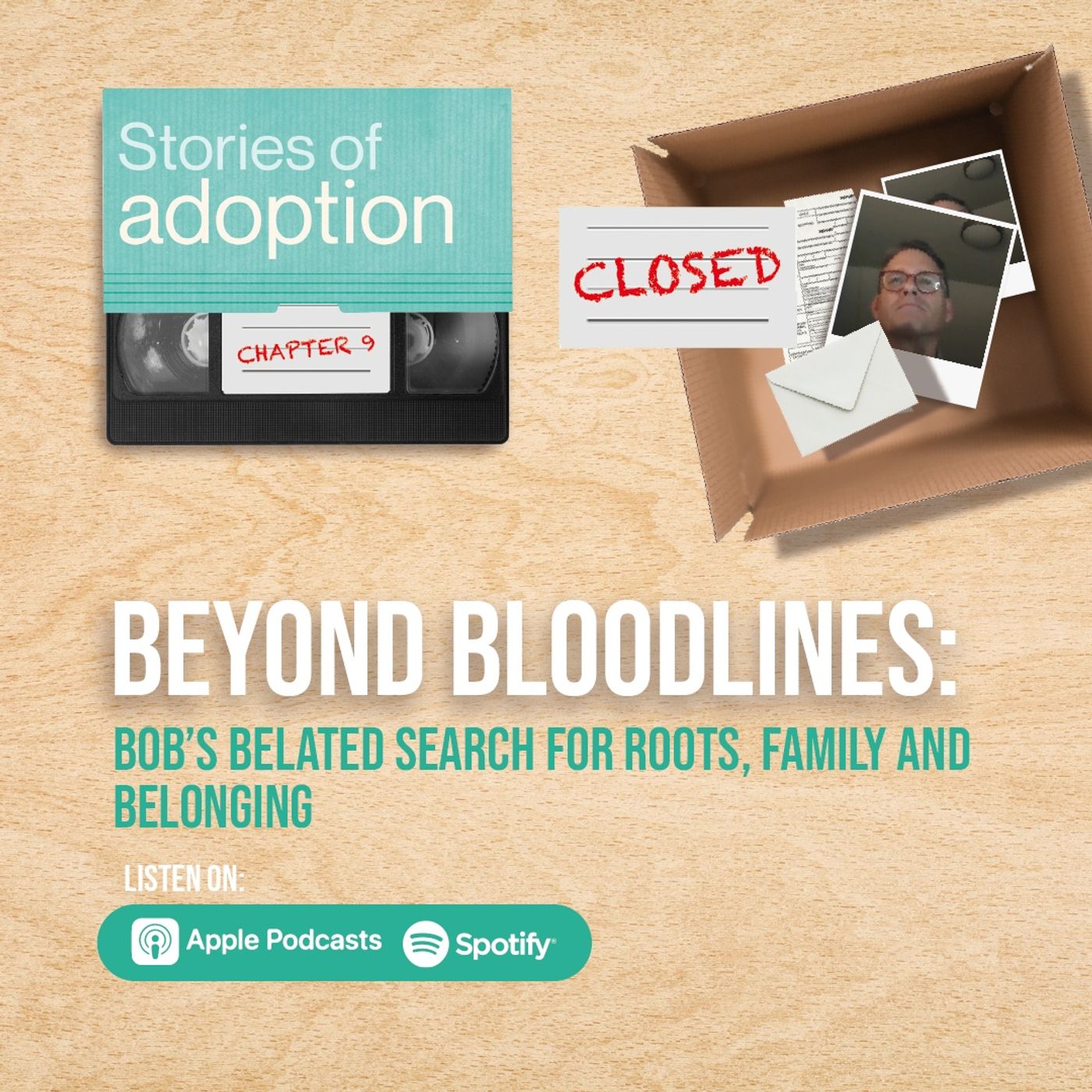“The odds are that everyone sitting in this classroom today
will not make it through this course. Some of you will drop out because it will
become uncomfortable to deal with the issues that will be brought up in
this class.”
This was said by my professor this past semester in a
Christian counseling course I took as part of my bridge work toward my
doctorate.
mid-way through the course. And among those who didn’t, it became emotional
at times. I cried during two of the lectures and I remember glancing over at my
colleague who is another minister about my age – a big strong man. There he sat
at his desk with his head in his hands, handkerchief up to his eyes, weeping.
It isn’t always easy for adoptees to come to a place of peace regarding our past, or even our present, when it comes to our adoption. For some adoptees, they can’t imagine it. Until recently I would have been among that number. I experienced what is known among adoptees as “coming out of the fog” in 2012. Thanks to a lot of counseling and support I’ve come a long way since then. I would characterize myself as having peace in my life in general, but as far as having peace regarding my life circumstances surrounding my adoption, not so much. Recently though, things have shifted and I’m ready to share. Warning: this is going to be a long post. 🙂
step of what is known as the Adoption-Reconstruction Phase Theory. Here is a
graphic created by Amanda at the Declassified Adoptee that helps to understand
what it is:
I remember first glancing at this theory years ago and thinking,
“Yeah…right.” I spent a lot of time the past seven years between steps three and four, teetering toward five but never getting there. As much
as I wanted to believe I would someday be at peace regarding my adoption
journey it did seem elusive. I couldn’t reconcile the actions of some people and where God was in all of it. Going there in mind at all would take me to a very dark place.
days because I believe there are times, taking triggers into
consideration, that it’s common to flux between the steps on occasion.
step three to step five. The first thing that helped was two Christian counseling classes I took this summer. Adoption was never mentioned in the classes. But I gleaned a lot that I applied to my struggles.
I
realize a lot of people have no interest in taking
continuing education courses or they may not be able to afford it. That
is
understandable. I
anticipated receiving knowledge but was surprised at coming to a place
of peace regarding adoption. Being a student in the Christian Counseling class and gleaning insight on helping others, helped me too in my own personal life.
professor asked all of us what theological concept we struggled with the most.
We were permitted to choose our own topic for a final research paper and I
purposely based mine on my greatest theological struggle. Working on that for a few months helped me
wrestle with a lot of the “whys” I never thought I would be able to fully reconcile. Questions like, “Where was God in all this?” “Did He feel pain?” and “Was he sad too, over my losses?”
I consoled myself many times with what I thought were the answers to these questions, but honestly I had never drilled down to answer the questions theologically once and for all. I told myself what I wanted to hear a lot of the time, to stay sane. Believing that God could have “planned this for me from the very foundations of the world” as I had been told more than once, and that he may have no feelings for my losses in the matter was unthinkable to me. I set out to find out the truth. My final paper was on The Doctrine of the Impassibility of God: God Can Have Feelings Without Freaking Out. (I didn’t write the title until I completed my research.) My faith was greatly bolstered, in what I discovered.
Normal
0
false
false
false
EN-US
X-NONE
X-NONE
/* Style Definitions */
table.MsoNormalTable
{mso-style-name:”Table Normal”;
mso-tstyle-rowband-size:0;
mso-tstyle-colband-size:0;
mso-style-noshow:yes;
mso-style-priority:99;
mso-style-parent:””;
mso-padding-alt:0in 5.4pt 0in 5.4pt;
mso-para-margin-top:0in;
mso-para-margin-right:0in;
mso-para-margin-bottom:8.0pt;
mso-para-margin-left:0in;
line-height:107%;
mso-pagination:widow-orphan;
font-size:11.0pt;
font-family:”Calibri”,sans-serif;
mso-ascii-font-family:Calibri;
mso-ascii-theme-font:minor-latin;
mso-hansi-font-family:Calibri;
mso-hansi-theme-font:minor-latin;
mso-bidi-font-family:”Times New Roman”;
mso-bidi-theme-font:minor-bidi;}
God is not limited in his attributes as mankind is. The fact that God can feel
grief or sadness does not mean he is also subject to emotional instability.
First, not every human being becomes emotionally unstable when he or she is sad
or grieved. Surely the God of the universe can feel without becoming unstable.
Second, God is not limited in his attributes as humans are. We are not measured
on the same scale. Scripture says of God: “For my thoughts are not your
thoughts, neither are your ways my ways, saith the Lord. For as the heavens are
higher than the earth, so are my ways higher than your ways, and my thoughts than
your thoughts.” (Isaiah 55:8-9 KJV)
for him to have a physical body to have a thought. This lends itself to the
notion that a spirit who can have a thought would also have capability to have
a feeling. God has ability to do anything but contradict his own laws. It is no
contradiction of his laws that he possesses the ability to feel. God’s capability to feel does not mean that
he is subject to out-of-control mood swings. God has the capacity to be sad but
not shaken. People sometimes have a difficult time picturing one who is sad but
not shaken, but God is beyond what our minds cannot conceive and can do what we
could never do.
sufferings, yet still holds the power to redeem all. “In all their affliction he was afflicted, and the angel of his presence
saved them: in his love and in his pity he redeemed them; and he bare them, and
carried them all the days of old.” (Isaiah 63:9 KJV)
The third thing that helped me was having some talks with my
friend, Pastor Linda Klippenstein, who is one of the pastors at our church.
From time to time we meet for coffee and talk things over about life and ministry. One day I was processing some things with her about seeing the very dark side of leadership and how to move through that and she gave me thoughts on coming face to face with the dark side of humanity in general. Our talks were not about adoption, but as she spoke wisdom into my life about the topic of the dark side of humanity, I began to consider it regarding my own family
both biological and adopted and my situation as a whole and it gave me some new perspective.
but to encourage others. So, here’s the takeaway…
sand grapple with the most distressing parts of your life and beliefs. Staying in
the fog is so much easier in the short-run and that’s why millions of adoptees do it. It’s
harder to force yourself to examine every angle there is and come to grips with what you really believe.
or my pastor-friend are adopted or have any close connections to adoption. But
they have both impacted my thinking about walking through the most troublesome
parts of life and arriving at a place of peace.
This post is not a how-to. We all have our own journey. My encouragement today is simply to keep your heart open and press on.
Yes, of course. But it is no longer robbing my peace.






